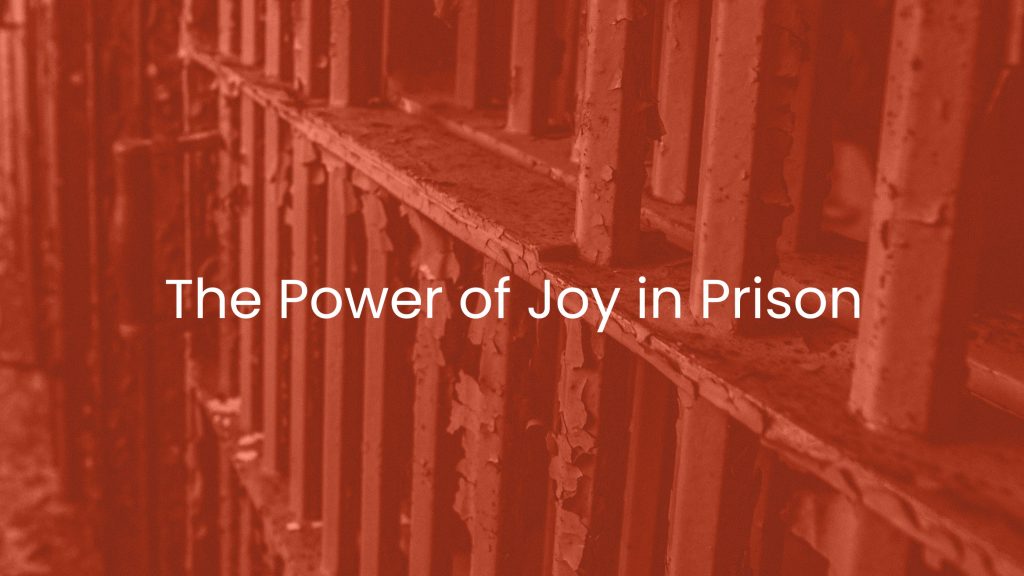|
Getting your Trinity Audio player ready...
|
About midnight, Paul and Silas were praying and singing hymns to God (Acts 16:25, ESV)
Paul and Silas were singing after being beaten and thrown into prison.
They’d cast a fortune-telling demon from a slave girl, eliminating her owner’s profit potential. In anger, they stirred up a crowd against Paul and Silas, with the crowd then dragging them to the magistrates of the city. Paul and Silas then had their clothes torn off and were beaten many times with rods.
Yet, at midnight, with no complaining or moaning about their difficulties, Paul and Silas were singing and praising God.
Pastor Denis Koslov, a friend of mine, recently gave me this researched and theological definition of joy. . .
It is a deep and abiding sense of delight and contentment rooted in the grace of God.
Then Denis continues. . .
It arises from the assurance of salvation through Christ, the experience of peace with God, and the knowledge that we are loved and accepted by God, not because of our works, but because of His grace. This joy is not dependent on external circumstances but is a result of communion with God, trust in His promises, and delight in His glory.
I agree with Denis that joy is not dependent on external circumstances but is a result of communion with God, trust in His promises, and delight in His glory.
Paul and Silas were living examples of this joy. But I find the story challenging as I’m not sure that I would be praising God if I were in prison with them.
My questions: Have I learned to praise God in my prisons? Have you learned to praise God in your prisons?
Let’s consider the bigger picture: The Philippian church became the first church in Europe. The city of Philippi straddled the major trade route between Europe and Asia, and it soon became a hotbed for the Christian faith.
What better place to establish a church than the crossroads of the world? With the church established in joy, it’s no surprise that the Epistle to the Philippians, written by Paul years later, became known as a book of joy.
The word joy is mentioned at least twenty times in Philippians. I imagine you couldn’t travel through Philippi in the first century without hearing the story of two men, beaten and bleeding, their praise causing the jail to be shaken and their chains falling off.
And if you didn’t believe the story, just ask the Philippian jailer who still lived in the city.
A side note: A jailer’s job in Roman times was to protect the integrity of the prison. Instead, the jailer invited Paul and Silas into his home. Then, it would have been the city officials’ job to execute the jailer.
However, Paul claimed his Roman citizenship after the beating (not before), which meant that the city officials were now in jeopardy of being executed.
All this execution potential, but none of it happened. Why?
With the jailer showing kindness to Paul, the jailer, in a sense, provided cover to the city officials who were now ingratiated to the jailer. The jailer could then tell his story to everyone in Philippi.
The Philippian church became the most joy-filled church in the New Testament.
Finding joy in our prisons releases the power of God!

